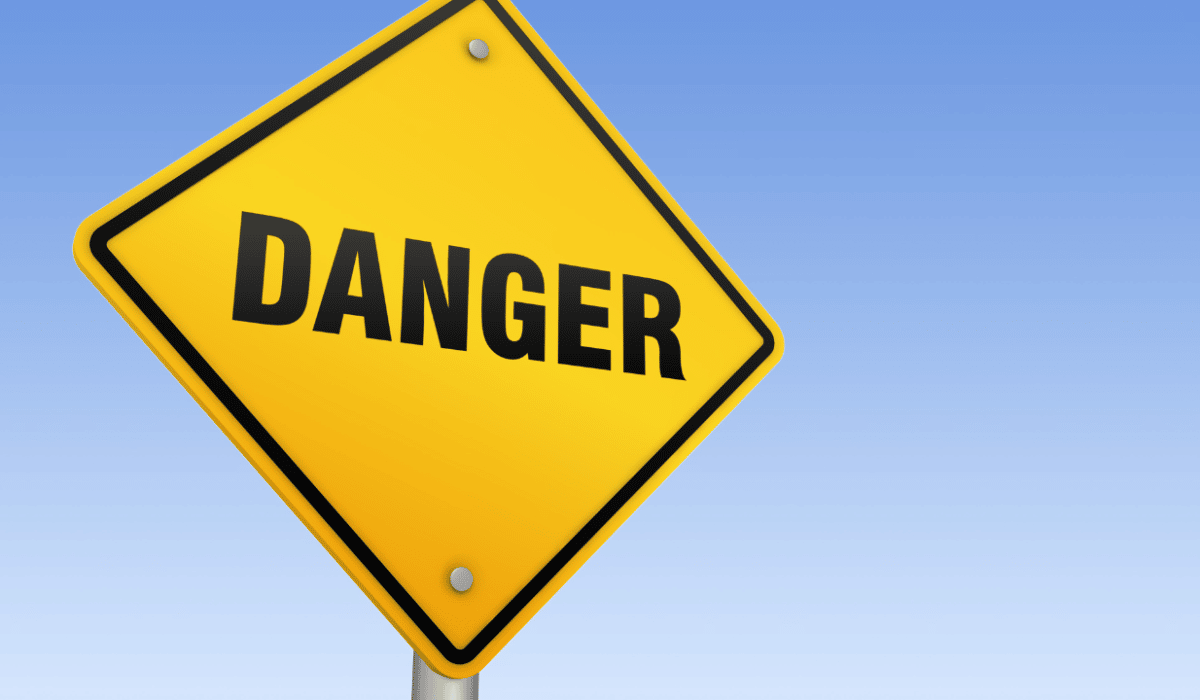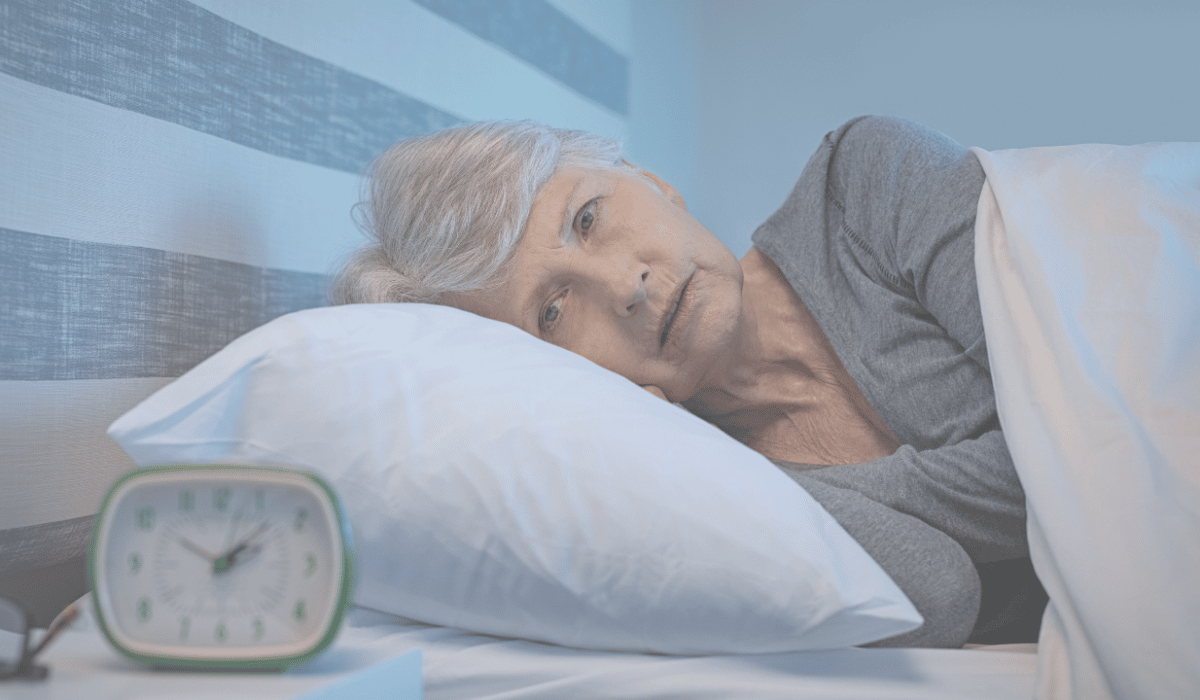Anxiety is one of the most commonly experienced mental illnesses worldwide. In fact, here in the UK it’s thought that over 8 million people are experiencing an anxiety (or anxiety-related) disorder at any one time. And that’s just what’s diagnosed. Almost all of us will experience anxious thoughts at some point or another in our lives, whether it’s diagnosable as a medical condition or not.
Feelings of anxiety can be overwhelming. They weigh over us like storm clouds just about to unleash their rain – only they never do. They just keep floating there, taunting us, warning us of imminent danger that, nine times out of ten, never becomes a reality. Anxiety can be particularly common at night, just before we go to sleep. With that in mind, we’ve written this guide on how you can calm your anxiety, both generally, and specifically in the evenings.
Why Do People Experience Anxiety?
Before anything else, it’s worth exploring just why exactly we experience anxious thoughts. There’s no one singular reason why people get anxious. At its core, it can be thought of the body setting in motion its fight-or-flight response to a perceived danger.
Now, our fight-and-flight response is an integral part of our physiological makeup – but only when it’s responding to genuinely dangerous situations. The problem with anxiety comes because we perceive more danger in a situation than there usually is.
Not only this, but we catastrophize and worry about future situations that are yet to materialise, but that we treat as though they’re certainties. All in all, it can be a pretty exhausting way to live; feeling constantly alert, worried and switched on can take its toll, especially at night.

Why is Anxiety Often Worse at Night?
Feelings of anxiety are predominantly worse at night because we’ve got fewer distractions around us. Lying in our beds provides our brains with ample opportunity to ruminate over both past mistakes as well as future problems. With this mental “space” to work with, it’s easier to get into patterns of overthinking. A pattern which, once started, is hard to interrupt.
Another reason our anxiety can be so much worse at night is that this, rightly or wrongly, is often when we spend most time on social media. Social media platforms are known to worsen mental health conditions, including both anxiety and depression. When all we’re seeing are countless, curated snapshots of the good parts of people’s lives, it’s no wonder that our anxiety rears its ugly head, asking us why we’re not living the lives they are.

Proven Methods to Help Deal With Anxiety
Fortunately, there are ways you can deal with feelings of anxiety, and what’s even better is that they’re incredibly easy to implement. The first method, and one that’s backed up by scientific research, is that of mindfulness.
Mindfulness Techniques
Mindfulness is the practice of grounding yourself and your emotions firmly in the present. It’s about focusing on what you can see, hear, smell, and importantly, about observing your emotions without passing judgement on them. Acknowledging them rather than reacting to them. Here is a list of easy-to-learn mindfulness techniques that you can start using today.
Distract Yourself
Distraction is another technique you can use when you recognise those anxious thoughts starting to build up inside. Whatever you distract yourself with, whether it be a TV show, book, baking or even just a change of scenery, this physical interruption can help stem the cycle of overthinking and rumination.
Start Journaling
Starting a journal of your daily thoughts and feelings can help greatly with reducing our anxiety. The act of writing out worrisome thoughts or stressful emotions can in and of itself provide some added ‘distance’ between our thoughts and the reality of the situation.
In the same way that venting to a friend or family member can relieve some of that anxious burden, so too can writing those feelings down. Plus, this has the added benefit of not depending on another person.

Building Up a Routine Can Help Alleviate Anxiety
Arguably the best thing you can do to help alleviate your anxiety in the longer term is to establish a greater routine in your life. Anxiety preys on our fear of the unknown, and that which we can’t control. What a routine offers, therefore, is a controllable known.
These daily schedules, whatever they may involve, give our anxious minds a framework to adhere to which feels safe. If you then build additional anxiety-relieving products into these daily routines, then you’re onto a winner!
The daily use of CBD products, for instance – whether that be patches, creams or edibles – gives you the two benefits. Firstly, it offers that routine, that something which you take like clockwork and that you know isn’t going to change. Secondly, the CBD itself helps reduce those feelings of anxiety.
CBD also works with our Endocannabinoid system, or ECS. This is a regulatory system that helps control many of our important bodily functions, including emotional processing, memory and learning. CBD is thought to help the ECS by preventing endocannabinoids from breaking down, which in turn enables it to continue to function more effectively.

Final Thoughts
Hopefully, having read this, you’ll feel like you can tackle that night-time anxiety a little bit better than before. Here’s an overview of what we’ve covered in today’s guide:
- Anxiety occurs for a variety of different reasons, from childhood trauma to a chemical imbalance in our brains. It leads to us overestimating the danger of the situations around us.
- Anxiety is often worse at night because there are fewer distractions around us, and this is also when many of us consume social media content the most.
- Anxiety can be reduced using a variety of methods, including: mindfulness, distraction, journaling and the creation of greater daily routines. With the latter, you can also implement CBD products to reduce that anxiety further.
If you’d like to find out more about our CBD products, then why not get in touch? Contact us by filling in one of our online enquiry forms here. We can’t wait to hear from you.



